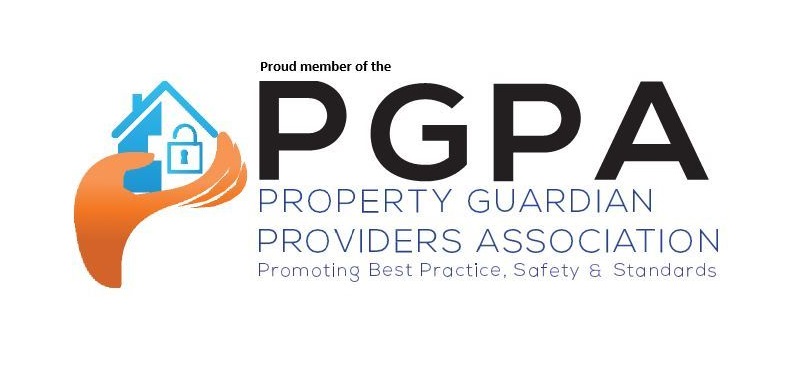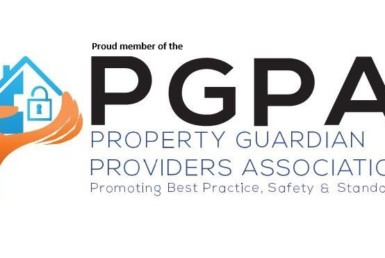Property Guardian Providers Association: Review of the Year 2019

Key points:
- Demand for affordable accommodation highest ever
- Over 60,000 people applied to become property guardians, double previous year
- More than 600,000 residential and commercial buildings lie empty in the UK
- The private rental sector UK average monthly rent reaches £967, in London £1,694
- Property Guardians monthly license fees average £600, ranging from £190 in Darlington, to £1200 in Portobello Road
- Local authorities and property owners spend £100 millions to secure and repair vacant buildings, targeted by vandals, arsonists and squatters
- Regulations designed for short-term assured tenancies are being inconsistently and inappropriately applied to the guardian sector, restricting empty properties being put to good use
- PGPA members add affordable co-working spaces to their remit, with premises available from £150 monthly licence fees.
Introduction
Property guardianship makes good use of temporarily vacant buildings, offering affordable accommodation for people at a lower cost than private rentals, whilst keeping properties secure.
Empty buildings are at significantly greater risk than occupied properties, from vandalism, arson (200 fires are deliberately started daily in the UK), fly-tipping (over one million instances annually), and squatting, as well as the impact of weather and general neglect.
By occupying them, property guardians greatly reduce both the risks to the buildings, and, consequently, also cutting the costs to local authorities and owners of security, or dealing with the aftermath of vandalism or neglect. The surrounding environment benefits from having less eyesores in the area, and the community benefits from the economic input from guardians living in a building that would otherwise stand empty.
In addition, approximately a third of property guardians are key workers, (teachers, nurses, doctors, police and emergency services workers), who choose to be property guardians so that they can live nearer their work.
Almost all guardians choose the lifestyle so that they can save on their accommodation costs – many do so as the only means to be able to save the deposit to buy their own property.
Demand
There has been a steep rise in applications for property guardianship this year to over 60,000, more than double the 2018 figures. Members of the PGPA, who make up a bulk of the sector, received over 50,000 applications themselves, and non-members well over 10,000. In comparison 2018’s sector census, carried out by the PGPA, estimated there were just over 30,000 people applying to become property guardians. The complete 2019 census data will be released in January 2020.
Supply
Freedom of information requests, made to UK local councils this year, has found a significantly higher proportion of vacant homes than estimates suggest. Up to September 2019, the UK had 617,527 empty buildings, of which 445,310 were residential dwellings and 172,217 were commercial buildings.[1]
However, regulations brought in to protect short-term assured tenancies in the private rental industry, have also been applied, some arguably unlawfully, to the property guardian sector, and this has restricted property owners ability or desire to release buildings for guardianship, and so instead stand empty whilst their redevelopment and plans are considered. (more details below)
The empty buildings that guardian providers have deployed for use in 2019 include vacated offices, former banks, pubs, schools, police stations, monasteries, and sports centres, as well as prime residential properties and social housing in city and town centres, undergoing redevelopment planning.
Costs of property guardianship:
License fees remain extremely attractive in comparison to private rentals, often still at half the rate or better of the PRS. In addition, the majority of guardians’ licensees are inclusive of utility bills and council tax, and sometimes also wi-fi.
The average rent for a home in the United Kingdom increased across all regions in September 2019, when compared to the same month a year before. The national average rental is £967, whilst in Greater London it has reached £1,694. [2]
In comparison, these properties were available to guardians in November and December 2019:
£200 per month, for a room in a house close to town centre, Blyth, Northumbria
£190 per month, for a room in Darlington, County Durham
£206 per month, for an en-suite room close to West Bromwich (photo on the right, next page)
£257 per month, for a room in a manor, in a rural village, Warwickshire (centre photo, next page)
£650 per month, for a large room in Bloomsbury, Central London (photo left) bills included
£1200 per month for a two bed flat in Portobello Road, London
£566 per month, for room in a house in Cheltenham
£200 per month, for a room in a former manor, near Cardigan
£300 per month, close to central Brighton
£250 per month, all bills included, for a room in a former High Street Bank, Taunton, Somerset
In addition to these co-living opportunities, guardian providers have also this year added co-working spaces at very low fees, from £150 a month in Plymouth, to £650 for a prime location market stall in Shoreditch, Central London.
Safety
Setting standards for safety was the primary reason the PGPA was formed late last year.
This year, independent safety audits of PGPA member’s properties has been introduced – only members of the PGPA are subject to this safety provision. The PGPA has agreed a co-ordinated partnership with a Primary Authority. Any members property secured by live-in guardians, can be subject to a safety, health and environmental check, at short notice. Calling in an independent Fire and Environmental Standards Authority will give not only guardians themselves, but other stakeholders such as local authorities, landlords and property developers piece of mind that the properties live up to, if not exceed, safety and health regulations. This safety partnership only applies to members of the PGPA.
Regulations
The introduction of recent housing and property management laws and regulations could significantly harm the provision of affordable accommodation in the UK, and there is a very definite gap between the understanding of the guardian model, and the laws designed primarily for short-term assured tenancies, being inappropriately applied to guardian licenses.
Non-domestic ratings (business rates) vs council tax
From many housing enforcement officers’ point of view, vacant premises with guardians living there, requires an HMO licence, its temporary vacant status of no concern. However, Valuations Officers regard office premises, for example, as commercial and subject to business rates, and should not be treated as exempt and liable to council tax. So property guardian providers – the companies that bridge the gap between the property owners and those seeking affordable accommodation – are finding disincentives piled onto property owners from all sides: one local authority department wishes to treat the buildings as purely residential, another department sees them as commercial. The impact of this double-pronged threat, will be that fewer opportunities for affordable accommodation will arise – leaving buildings empty for longer, subject to costly vandalism and neglect, instead of being put to good use whilst redevelopment is being sought.
In the most recent Upper Tribunal judgment (July 2019), Valuation Officer (Southwark) vs Ludgate House Ltd, the judgment overruled an earlier tribunal, and required the Valuation Officer to delete the business rates applied and revert the building to council tax liability. Because of the length of time the tribunal process has taken, the incentive for property owners to secure their vacant properties with guardians, by saving the cost of business rates, has been lost.
Guidance or clarity from the government that Valuations Officers should allow commercial buildings to be exempt from business rates, if they can be put to good use providing safe, affordable accommodation, would be a significant help in encouraging more use of the property guardian model.
Houses of Multiple Occupation (HMOs):
From 1 October 2018 mandatory licensing of HMOs was extended so that smaller properties used as HMOs in England which house 5 people or more (in some cases 3 or more) in two or more separate households will require a licence.
The PGPA members first priority is that safety and environmental standards are applied to properties where guardians are staying – and not only have engaged a primary authority to audit their properties, but also commissioned a template for the legal obligations under the current Housing regulations, ‘Safety First: The Law on Property Guardianship’ White Paper, which the PGPA consider to be part of the toolkit of best practice.
However, HMO’s are designed for properties with tenants – who are likely to be living in the premises for anything from 6 months through to many years. Properties that house guardians are almost the opposite of that – they are temporarily available buildings for which the timescale of availability as housing is often unknown, as planning for redevelopment is far from being a certain science. Most local authorities require applications for 3 or 5 year HMO licenses, with very few short-term exceptions. In addition, the availability of Temporary Exemption Notices (TENs), is inconsistently applied, and not extendable after six months.
The PGPA would like a recommendation or guidance from the government to local authorities allowing the extension of TENs beyond 6 months for buildings which would otherwise stand vacant, whilst their future is being determined.
The requirement to apply for HMOs is acting as a disincentive for property owners to allow their vacant buildings to be secured by guardians, at a time when there is significant pressure to find affordable accommodation.
Health and safety requirements for buildings used as dwellings are clearly stipulated by the Housing Health and Safety Rating System (“HHSRS”), the primary legal framework for the enforcement of housing standards. It applies to buildings or parts of a building occupied or intended to be occupied as dwellings. The provisions of the HHSRS are enforced by local authorities, acting through their environmental health departments.
Expulsion
One company member of the PGPA was expelled by the Association for falling below the standards expected of its members, and for failing to pay its membership fee. Camelot Guardian Management Company Ltd, also known as Camelot Europe, went into voluntary liquidation in November 2019, and its directors set up a new company, Watchtower Security Solutions Ltd, to whom it transferred its guardian business and offices.
2019 Review Conclusion:
The property guardian model first began in the Netherlands in the 1990’s, where there is also a serious housing shortage and private rental accommodation in the cities can commonly take up to 70% of an average person’s income. The guardian sector has grown there to provide approximately 30,000-35,000 people with affordable accommodation, which for a country with 17 million population, would equate to over 100,000 people in the UK. Property guardians in the UK could also become a significant support to help ease accommodation shortages.
The chairman of the PGPA, Graham Sievers concludes “There are hundreds of thousands of houses, apartments, offices and public buildings standing empty across the UK, whilst they undergo redevelopment planning and fund raising. And yet there are also hundreds of thousands of people who want to find affordable accommodation nearer to where they work. Many of our current guardians choose this option to save up for a deposit for their first own home. So far this year, the increasing legislative and regulatory landscape for the private rental sector has only put pressure on owners of these properties to keep them empty, and not to put them to good use whilst their future is decided. We hope the support we provide together with the safety standards the PGPA imposes on its members will help to redress the balance.”
[1] https://www.todaysconveyancer.co.uk/main-news/empty-unused-buildings-increase-2019/
[2] https://www.statista.com/statistics/752203/average-cost-of-rent-by-region-uk/


Join The Discussion